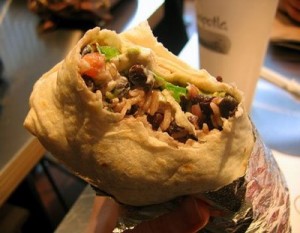Friday Roundup
Swing to the right? Adam Liptak of the New York Times had a lengthy piece in last Sunday's edition, arguing that the Supreme Court under Chief Justice Roberts was the "most conservative in decades." That was based on coded databases of SCOTUS decisions, one going back to 1953 and the other to 1937, which essentially branded justices as conservative or liberal:
In the database, votes favoring criminal defendants, unions, people claiming discrimination or violation of their civil rights are, for instance, said to be liberal. Decisions striking down economic regulations and favoring prosecutors, employers and the government are said to be conservative.
Based on this analysis, Liptak concluded that "in its first five years, the Roberts court issued conservative decisions 58 percent of the time. And in the term ending a year ago, the rate rose to 65 percent, the highest number in any year since at least 1953." By comparison, the Warren Court issued conservative decisions only 34 percent of the time.
The conservative National Review Online takes a different view, and there's some merit to that argument, especially the argument that the Court is no more conservative than the Justice Kennedy is:
Consider Kennedy's opinions and positions on abortion (Planned Parenthood v. Casey), gay rights (Romer v. Evans and Lawrence v. Texas), the Establishment Clause (Lee v. Weisman), the death penalty (Roper v. Simmons, Kennedy v. Louisiana), national security (Boumediene v. Bush, Hamdan v. Rumsfeld, Rasul v. Bush), and the general use of contemporary foreign law to redefine the meaning of provisions of the Constitution (Roper, Kennedy, and Lawrence). Consider also, for example, that Ted Olson's entire litigation strategy in the anti-Proposition 8 case in California is premised on Olson's very plausible conviction that Kennedy will vote to invent a federal constitutional right to same-sex marriage. I simply don't see how anyone can seriously regard Kennedy as generally conservative.
I think the bigger problem is that the database approach views cases quantitatively, rather than qualitatively: Blakely and Crawford are no more significant than Arizona v. Johnson or US v. Marcus. (Don't remember Johnson or Marcus? Well, that's the point.)
Don't get me wrong; there's no question that the Court has gotten more conservative. I remember when there really was a "liberal wing": people like Brennan and Marshall and Blackmun, who were consistent votes for criminal rights and who believed that the death penalty was unconstitutional. There's nobody like that now. But Blakely and Crawford have revolutionized 6th Amendment jurisprudence, and I haven't seen anything nearly as pernicious out of the Roberts Court as the 1996 decision in Whren v. US, which held that the cops could stop a car for the most trivial traffic violation, even when that was merely a pretext. So I'll postpone the handwringing for at least another year or two.
Possible exit strategy. I may be closing down the blog, depending upon whether my application for the head of public relations at the Vatican is accepted. I've certainly got a shot; it's quite clear that the position has been vacant for some time.
Watch what you eat. Here's why you read this blog: so at the cocktail party on Saturday, you'll be able to inform your fellow celebrants that this week is the 20th anniversary of the Americans with Disabilities Act. While the president marked the occasion with an event that threatened to lapse into a self-parody of diversity -- festivities featured a diabetic singer, a schizophrenic musician, and a speech by a deaf actress -- some observers grumpily argued that the law has been a disaster, actually resulting in decreased job opportunities for the disabled. To be sure, that's been balanced by the increased employment opportunities for attorneys ever vigilant for new ways to make a buck.
The latest exhibit for the latter is the 9th Circuit's ruling this week that, by virtue of its restaurants' 45-inch high countertops, Chipotle's was denying its wheelchair-bound customers the "Chipotle experience" of watching their burr itos and tacos being made.
itos and tacos being made.
That the plaintiff's motivation was something other than sadness at not being able to witness the creation of the culinary masterpiece pictured at right is confirmed by a finding of the District Court: that his "history as a plaintiff in accessibility litigation supports this Court's finding that his purported desire to return to the [r]estaurants is not sincere. Since immigrating to the United States in 1991, Plaintiff has sued over twenty business entities for alleged accessibility violations, and, in all (but one) of those cases, he never returned to the establishment he sued after settling the case and obtaining a cash payment."
I've been to Chipotle's too, and I never returned. Admittedly, that had to do more with having to eat their food than having to watch it being made.
Comments